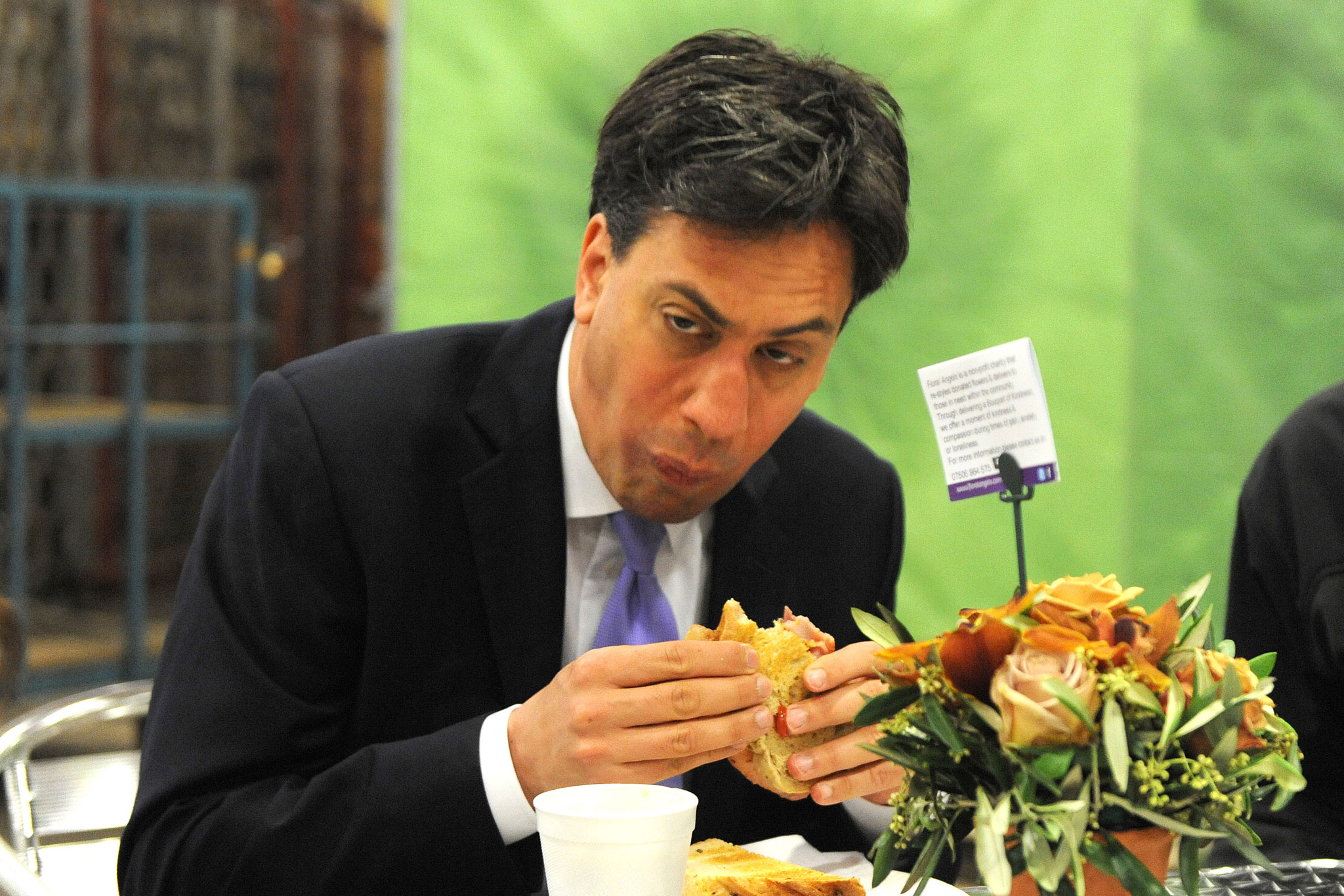Politicians need to stop thinking in terms of ‘ordinary’ people
The term is an insult to those from backgrounds like mine – which is the vast majority


Ed Miliband starts a 10-visit tour of England to highlight the cost of living by posing with a bacon sandwich. David Cameron leans in to yet another selfie with a member of the public. Nick Clegg fields questions about his weekly shopping budget. And Nigel Farage is just Nigel Farage. This was the final day of campaigning for the local and European elections: the party leaders trying their best to be men of the people, rather than privileged members of the political elite.
While politicians just want to be ordinary in the hunt for our votes, we “ordinary people” strive to be something special. We want to have more money, a bigger garden, more Twitter followers… and that is just me. Some of us want our 15 minutes or more of fame, while others just want to achieve something amazing without the celebrity: climbing a mountain, running a marathon, or raising money for our local hospice.
Who would want to be described as ordinary? Not me. Imagine my surprise, then, to receive an email from the Government’s Social Mobility and Child Poverty Commission telling me I’d been singled out for my “ordinary background”. It seems my ordinariness is extraordinary enough to be regarded as a case study, a specimen to be poked at, like a moth pinned to a scientist’s board.
I had responded, some weeks ago, to a survey from the Commission into the educational backgrounds of people in journalism and other professions. I went, I told them, to a state school in Liverpool called Calderstones Comprehensive (it used to be called Quarry Bank, where John Lennon was a pupil, but the city’s education authority in the 1980s decided to make our school a bit less special). From there I went to Leeds University, a mid-table Russell Group institution, where I achieved a middling 2:2 degree, and then a post-graduate diploma in journalism. Not a CV that has future Cabinet minister or Ambassador to Washington written all over it, I’ll admit. But somehow I managed to scramble my way up to be the Political Editor of a national newspaper.
Journalism is dominated by Oxbridge graduates and private-school alumni and the Westminster lobby is a distilled version of that, mirroring British politics itself. Although in the 13 years I’ve been involved in both, they have begun to look a tiny bit more like the real Britain. I should not be surprised, then, that those trying to improve social mobility in this country want to know how on earth I managed to drag myself up to my current position.
In the email, the official wrote: “Many children from less advantaged backgrounds think it is impossible for someone like them to reach the top.” And: “Many people say that it is becoming more and more difficult for children from ordinary backgrounds to reach the top.”
While I applaud the commission for its work, and want to help, I couldn’t help being amused by this language. Yes, I feel I am in a minority in Westminster, but the word “ordinary” is so pejorative. When writing about voters, I try not to use the terrible phrase “ordinary people” and suggest that politicians and civil servants avoid it too. It suggests we are all members of one lumpen mass of bland humanity on a hamster wheel of commuting, work, commuting and sleep.
In any case, do I see my background as “ordinary”? I prefer “normal”, in that going to a local state school was entirely normal. That’s what 93 per cent of the population do. Less advantaged? Certainly not.
My childhood was idyllic. My parents were English teachers, who could afford a house with a garden, and a family holiday every year. Liverpool was a wonderful, colourful, vibrant place – even in the Militant days of the 1980s. Even if my parents could afford it, they still would have sent us to state school. I would not have swapped my childhood for anyone else’s.
But when the Government and the political Establishment think about state education, it seems to do so with a head-on-one-side sympathy, as though going to a state school is something to be pitied. When Alastair Campbell spoke of “bog standard comprehensives” more than a decade ago, I knew his point was about the Labour government improving state schools with academies. But for those of us who had been educated at a comprehensive, it just felt like another slight.
Eric Pickles, the grammar-school educated Communities Secretary, once told me only half in jest: “Nobody should look down on somebody just because they had the misfortune to go to Eton.” Because when the government – including those at the Social Mobility Commission – use the phrase “less advantaged”, do they mean less advantaged than people who went to private school?
It may sound like I am quibbling over a few words and phrases, but the serious point is this: it is ingrained in the collective mind of the Establishment that a state education is somehow inferior to going to a top public school. This mindset seeps into everything: from the people who carry out Oxbridge selections to employers in the top professions – creating a vicious circle.
To the Social Mobility Commission, that is your problem right there. I know that the commission’s real targets in achieving a more egalitarian society are those who did not go to university, or whose parents weren’t teachers. But to get there they need to think of all of us as having lives less ordinary.

Join our commenting forum
Join thought-provoking conversations, follow other Independent readers and see their replies